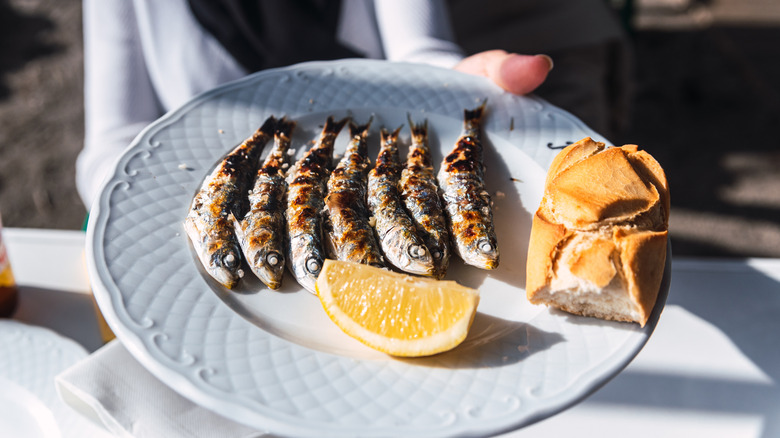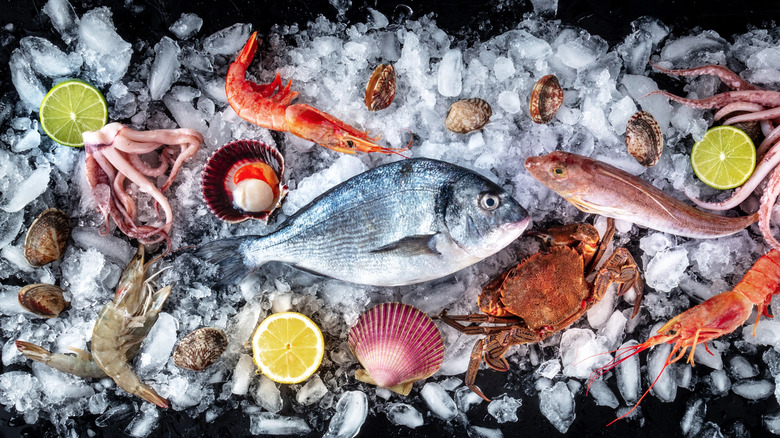The One Question You Should Never Ask When Ordering Fish
It's a question that feels logical: Is the fish fresh? But in the context of a reputable seafood restaurant, especially one that prides itself on sourcing, this question can land pretty awkwardly. It's a not-so-subtle insult to the very premise of the establishment, which isn't the best way to begin a nice dinner out.
If that scenario seems exaggerated, just listen to what Kevin O'Donnell, chef and owner of Giusto, has to say. With locations in Providence food hall Track 15 and Newport, Rhode Island, O'Donnell is very familiar with serving fine seafood. "I think this is just a sign that maybe you have had some bad experiences at restaurants with fish that was not fresh," he suggests. "If you are going to a well-established and respected restaurant I think it's safe to assume that the fish will be fresh."
For many diners, "fresh" connotes something that was pulled from the ocean that morning and tossed onto a plate by dinnertime. That's a romantic idea, but one that's more fantasy than it is a reality, unless you're at a seafood shack off the coast of Maine picking out your own lobster. In this era of global supply chains, along with the sophisticated ways restaurants store fish to keep it fresh, many high-end seafood restaurants don't rely on just-caught timelines. Reputable seafood restaurant chefs usually work with trusted purveyors, sourcing the best product available in season and at peak quality. And, in many cases, fresh isn't always better than frozen.
Disrupting the rhythm of restaurant hospitality
Kevin O'Donnell affirms the high quality of adequately frozen fish. "Freezing the proper way in a blast freezer can many times produce a better quality fish. When fish is frozen slowly, the water expands as it freezes and denatures the protein cells, making the fish soft and soggy after it thaws," he explains. "Freezing fast in a blast chiller preserves all of the good qualities about the fish, and if done on the boat, can provide a better quality finished product. It also kills parasites and can be a safer way to consume fish, especially when eaten raw."
If you've chosen a seafood-forward restaurant that takes pride in its craft, you can assume it's not risking a business license or reputation by serving seafood that isn't fresh. In other words, don't freak out if Alaskan halibut is on the menu, but you're in California. "I don't think there is any menu terminology that would reveal if the fish was frozen. Even fish coming from far away can be fresher depending on the distributor and how it was handled to begin with," O'Donnell advises. "I would prefer to eat fish that was frozen properly over fresh fish that was mishandled and sitting in a refrigerator on ice for seven days."
Dining well is about so much more than what's on the plate. It's about understanding context, respecting craft, and engaging with food as something more than a transaction.

